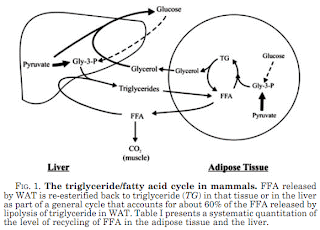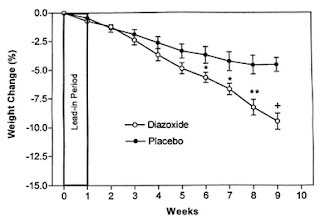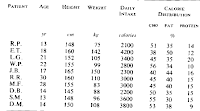Mitochondria and High Fat Diets
Lots of buzz over mitochondria of late. So I thought I'd share this find: High-fat diets cause insulin resistance despite an increase in muscle mitochondria It has been hypothesized that insulin resistance is mediated by a deficiency of mitochondria in skeletal muscle. In keeping with this hypothesis, high-fat diets that cause insulin resistance have been reported to result in a decrease in muscle mitochondria. In contrast, we found that feeding rats high-fat diets that cause muscle insulin resistance results in a concomitant gradual increase in muscle mitochondria.








